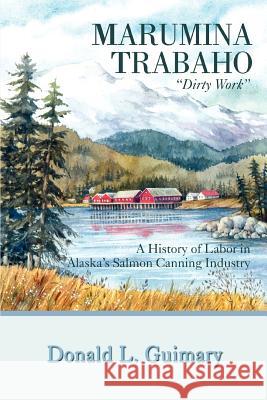Marumina Trabaho: A History of Labor in Alaska's Salmon Canning Industry » książka
Marumina Trabaho: A History of Labor in Alaska's Salmon Canning Industry
ISBN-13: 9780595407071 / Angielski / Miękka / 2006 / 340 str.
Marumina Trabaho: A History of Labor in Alaska's Salmon Canning Industry
ISBN-13: 9780595407071 / Angielski / Miękka / 2006 / 340 str.
(netto: 83,54 VAT: 5%)
Najniższa cena z 30 dni: 87,72
ok. 16-18 dni roboczych
Bez gwarancji dostawy przed świętami
Darmowa dostawa!
Before discovery of gold, and after, canned salmon was the economic backbone of The Alaska Territory until after World War II. Although the largest contributor to Alaska's economy during the first half of the 20th Century, historically little has been written about workers and the conditions they endured producing canned salmon.
Canning salmon in Alaska was dirty work ("Marumina Trabaho") performed mostly by Filipino immigrants from about 1915 through the 1960s. But "dirty work" was also a process in which cannery workers were hired by unscrupulous contractors, encouraged by greedy owner operators.
Cannery workers suffered exploitation of ethnic groups, hazardous shameful transportation, endured miserable living conditions in primitive, segregated housing, were fed cheapest food, and were cheated on wages. Early labor unionization efforts created additional problems and provided little relief until statehood, legislation, and court rulings finally forced changes.
"Marumina Trabaho" is the author's extensive report and the history of labor involved in the production of Alaska's canned salmon, beginning with his teen age personal experiences.











